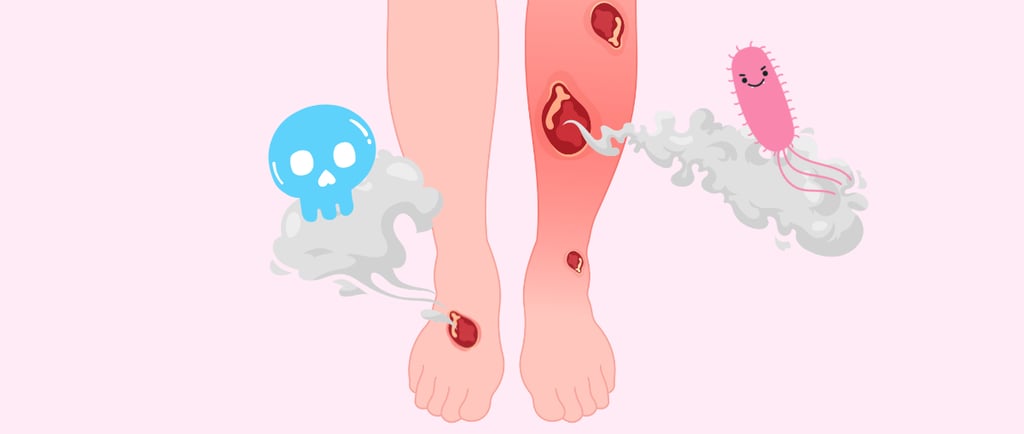What Is the Best Approach to a Chronic Venous Ulcer?
Venous ulcers often develop on the legs due to poor blood circulation that damages the veins. While improving blood flow is important, it is often not enough on its own to fully treat the ulcers.
CARDIOVASCULAR
Sheryl Aguelo
9/22/20252 min read


Conventional medical treatment usually includes compression bandages and medications like pentoxifylline (Trental) to improve blood flow. However, I believe this approach doesn’t fully address the root cause of the problem.
As a patient, you might be asking yourself: What causes poor blood flow in the first place?
From a holistic functional medicine perspective, especially in chronic cases, poor blood flow may be caused by pathogens (such as bacteria, viruses, parasites, or worms), the buildup of toxins, or nutritional deficiencies that gradually impair circulation.
Assessment can help you identify the cause. Stool tests and blood cultures can check for the presence of pathogens. A urinalysis can detect the accumulation of toxic substances, and hair analysis can be useful for identifying exposure to heavy metals or other toxins. It’s also important to examine your mouth for decayed teeth or dental fillings, especially those containing mercury, as they can serve as hidden sources of bacteria and toxins. If necessary, consult a dentist for safe removal. Additionally, a comprehensive blood test to assess nutritional deficiencies can be very helpful. Correcting these deficiencies is especially important in chronic illness, as it can greatly support and speed up the healing process.
For now, a good place to start is by changing your diet. Try juicing fruits and vegetables, especially green leafy ones like celery, as well as apples and carrots. Adding turmeric and ginger to your juice can help combat bacteria. Drinking lemon juice first thing in the morning supports liver cleansing. Avoid fried and processed foods, and try to eliminate bread, or at least significantly reduce it for 3 to 6 months. While some people may need more than six months to fully recover, if you notice improvements, continue with this diet until you feel completely healed.
If you test positive for a bacterial infection, consider using full-spectrum botanical antibiotics like oregano oil. Oregano targets many types of pathogens, including bacteria, viruses, parasites, and worms. Black walnut hull is another option, especially effective against parasites. For detoxification and toxin removal, green juices and activated charcoal can be helpful. Additionally, many people, especially those with chronic illnesses, often have B vitamin deficiencies, so addressing these is important for overall recovery.
If you choose to avoid conventional treatment, consider consulting a functional medicine or naturopathic doctor. These practitioners are well-versed in the approaches I’ve mentioned. Some chiropractors also have additional training in functional medicine, and even some conventional doctors specialize in this field. Traditional Chinese medicine aligns with this holistic approach as well, focusing on healing the whole body rather than just treating symptoms.
DaVeganry
Empowering your health through holistic functional medicine.
DaVeganry
Stay Updated
daveganry@gmail.com
© 2025. All rights reserved.
